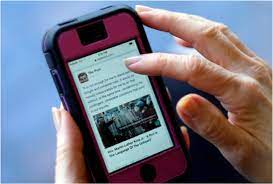
Barack Obama rose to prominence, and ultimately the presidency, following a speech at the 2004 Democratic National Convention in which he highlighted themes of unity and hope. Quite a simple message, yet for many, it was both inspirational and profound. The wild popularity of his message speaks to just how rarely we encounter optimism or experience a sense of community in our news stories. Divisiveness and cynicism dominate the banners at the bottom of the screen of our news programs, as well as the titles across the tops of newspapers and magazines. Apparently, economic forces over the years have identified that this type of news story sells more papers, or increases viewership, so the numbers seem to keep increasing.
Mental health professionals are keenly attuned to highly publicized events, aware of the potential impact on the mental health of each of us who shares in these collective experiences. It is not surprising, for example, to be discussing the random and relentless mass shootings across our country during a therapy session with a client, who recognizes how profoundly impactful it is to read or hear about the tragedies that others experience. Humans are social creatures, and we are designed to care about the well-being of our neighbors, even when we don’t know them personally. When they hurt, we hurt. That connectedness is not only beautiful; it is a fundamental pillar to our own mental health and well-being.
What happens when we repeatedly encounter a divisive political culture hijacking our media into delivering messages that suggest our neighbors mean us harm, and are possibly “the enemy”? Our inherent drive to care about and to trust those neighbors is challenged, and we question if it is valid. We certainly feel less connected to others, and our world feels more unsafe. Social isolation and states of fear are known risk factors for poorer mental health outcomes.
All indications are that the mental health of our nation is an increasingly concerning public health issue. Community, political and healthcare leaders are calling attention to the mental health crisis in our country. The numbers back this up. Emergency Department visits for mental health and suicide-related events had been increasing steadily in the years leading to the pandemic, only to rise more sharply since. Clearly, isolation, stress and fear related to the pandemic influenced the rate increase. Yet, understanding these mental health trends in the years prior to the pandemic has been more difficult. It’s been speculated the rise of social media played a role, though numerous cultural and social shifts may have influenced it. Societal discord that results from a broad and consistent focus by our media-outlets on all of our “differences” cannot be helpful. My own experience while providing mental health treatment is that it plays a major role.
On an individual basis, there can be numerous approaches to minimizing the negative consequences to our mental health by this near-constant disagreement spotlighted in the headlines. Some people might choose to decrease the time they spend with the news. Maybe even take a vacation from it, for periods of time. Others may work to counteract it, by engaging in activities designed to promote bringing people together, like coffee with neighbors, or volunteering. One might seek opportunities to recognize the positive in those categorized as “other”, as this can empower, and move us toward our own inner
harmony. However, influencing the bigger picture, to shift the public discourse away from discord, toward optimism and commonality is a much more difficult prospect. There may not be easy, obvious answers to the dilemma, yet, if we are going to address our mental health crisis, we must begin to find those solutions. And we will need to do it together.
For questions or to get assistance, contact the Brattleboro Retreat at 1-800-Retreat or Brattlebororetreat.org
